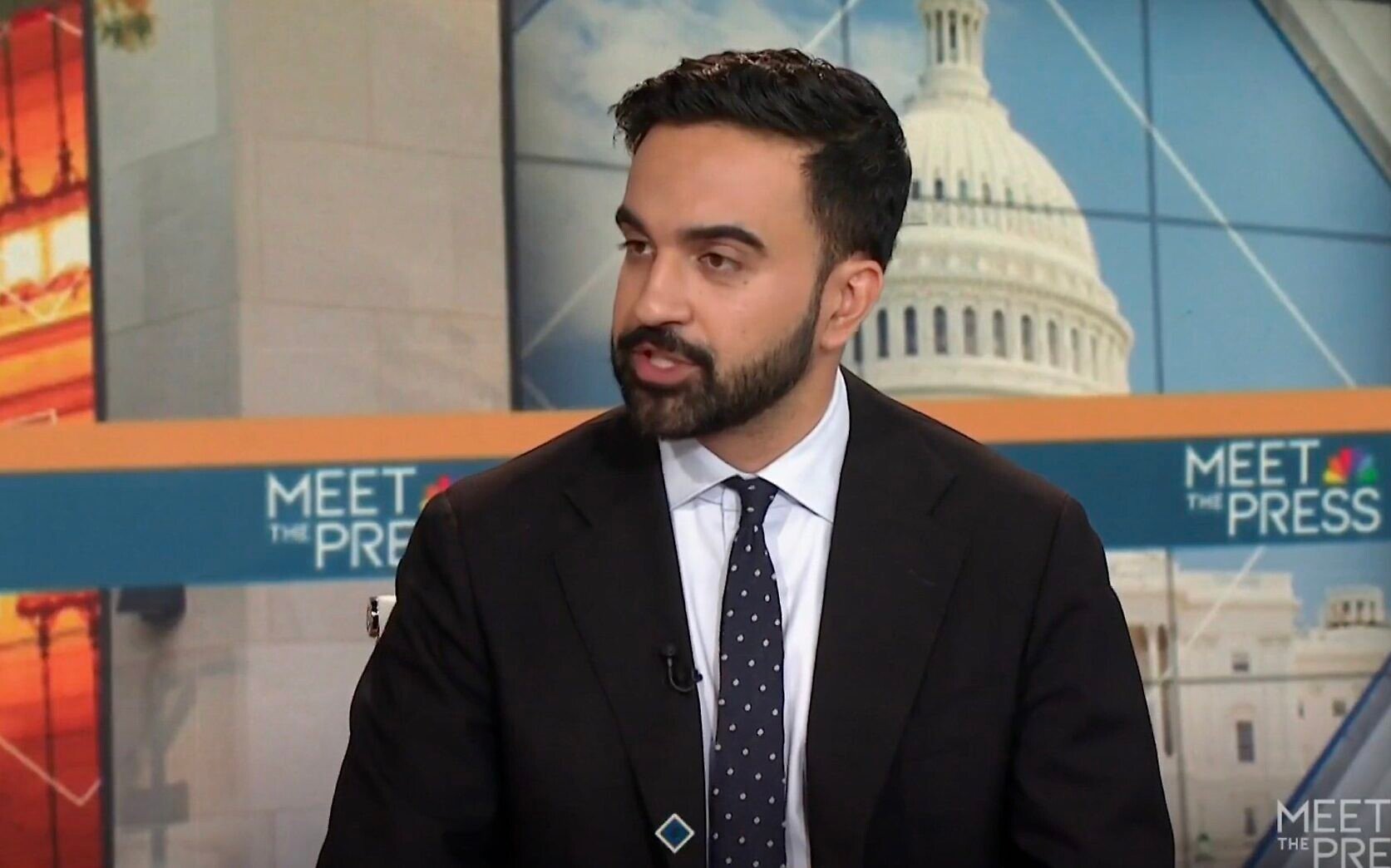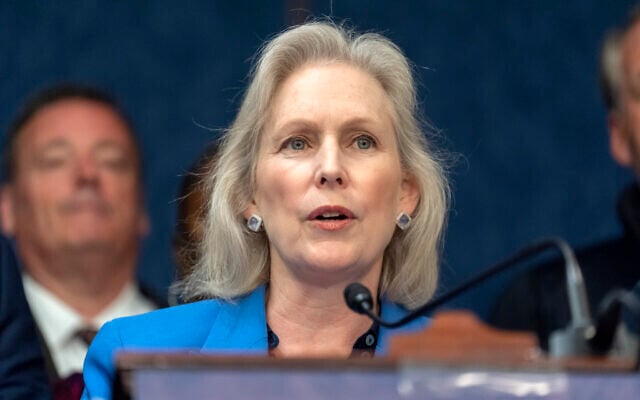



Asked three times if he condemns the phrase “globalize the intifada,” Democratic New York City mayoral primary winner Zohran Mamdani declined, telling NBC News on Sunday that it is not his job to “police language.”
Mamdani, an anti-Israel activist, has faced pressure to denounce the phrase, which many Jews see as a call for violent attacks on Jews and Israelis, after earlier this month he refused to condemn it while participating in a podcast.
“Intifada” literally means “uprising” or “shaking off.” But it is mainly associated with the Second Intifada in the early 2000s, when Palestinian terrorists killed hundreds of Israelis in suicide bombings. “Globalize the Intifada” is a common refrain for protest groups calling for Israel’s destruction and the ostracization of Zionists in the US.
Appearing on NBC News‘ “Meet the Press,” moderator Kristen Welker repeatedly pressed Mamdani to explicitly condemn the phrase, but he responded only, “That’s not language that I use.”
“The language that I use and the language that I will continue to use to lead the city is that which speaks clearly to my intent, which is an intent grounded in a belief in universal human rights,” he said, though he admitted “it’s language I understand there are concerns about.”
Mamdani said he embraces the belief that “freedom and justice and safety are things that have meaning, have to be applied to all people, and that includes Israelis and Palestinians.”
“I don’t believe that the role of the mayor is to police speech,” he said, repeating defensive remarks he has made in the past about the issue.
“My concern is to start to walk down the line of language and making clear what language I believe is permissible or impermissible takes me into a place similar to that of the president,” Mamdani said and pointed to pro-Palestinian, anti-Israel protesters who have been arrested over their participation in protest rallies.
He said he has heard from Jewish New Yorkers who are bothered by the “globalize the intifada” phrase.
“I’ve heard those fears, and I’ve had those conversations, and ultimately, they are part and parcel of why in my campaign, I’ve put forward a commitment to increase funding for anti-hate crime programming by 800%,” Mamdani said.
Mamdani drew heat from Jewish leaders earlier this month when he declined to condemn the phrase “Globalize the intifada” while speaking on The Bulwark podcast. In defense of the phrase, he evoked the Holocaust’s Warsaw Ghetto Uprising, a last stand against the Nazis by Jews who were set to be deported and killed.
Last week, New York Democratic Senator Kirsten Gillibrand called on Mamdani to condemn the phrase.
In an interview with WNYC on Thursday, Gillibrand told host Brian Lehrer that she had spoken to Mamdani the day prior to congratulate him on his victory, but replied “not today” when asked if she would be endorsing him, indicating the fuss over his refusal to reject the intifada phrase is among her concerns.
Mamdani’s defenders have said that too much emphasis has been put on his background as an advocate for Palestinians, a supporter of the boycott Israel movement, and a critic of Israel, saying his job will be to run New York, not foreign policy.
Mamdani defeated Andrew Cuomo in New York City’s Democratic mayoral primary on June 25.
He is considered the favorite in the November election, in which Mayor Eric Adams is running for reelection as an independent candidate. Curtis Sliwa, the founder of the crime-fighting Guardian Angels, is running as a Republican. Cuomo could also run as an independent candidate.

